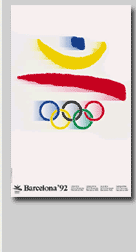


| The Ivy League's Complete History of the Olympic Games |
|
|
© 2004-2023 Council of Ivy Group Presidents. All rights reserved. Official Olympic Posters appear with permission and are the property of the International Olympic Committee (IOC). The image of the Acropolis was courtesy of the collection of Kevin T. Glowacki and Nancy L. Klein.
